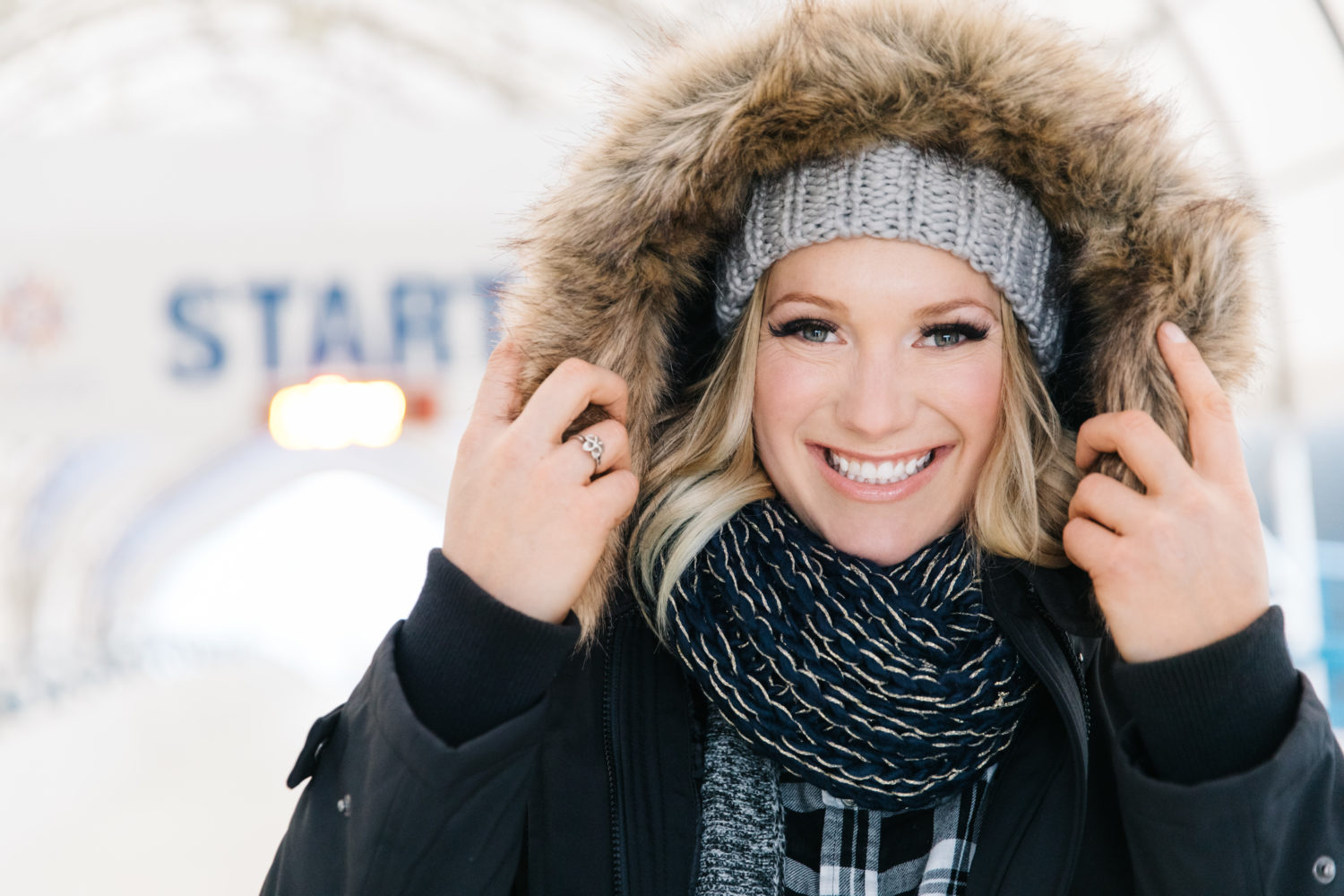Growing up, Alysia Rissling was a multisport athlete in her hometown of Edmonton in Canada who received scholarship offers for four different sports and attended the University of Alberta where she played both basketball and ran track and field, while also studying with the intention to attend medical school after. If you’re not familiar with Alysia and her story, you may be surprised to find out that she is a professional athlete, but not in either sport she played in college or had offers for; rather she is a Olympic athlete in a sport she picked up only five and half years prior to standing at the starting line of the PyeongChang Winter Olympic Games in 2018, bobsled.
Throughout her early and collegiate sports career, Alysia’s goal was always to get a scholarship that would pay for her education and enable her to get what she deemed a “real job”. “If you would have told me at age fourteen that I would be a professional athlete at thirty-three, I would have laughed in your face because I never really saw that as a possibility,” says Rissling. “As I was growing up, I didn’t have a lot of female role models as professional athletes but I realized it wouldn’t be uncommon for my brother or other boy’s my age to have the dream of playing sports professionally. This realization now fuels much of my passion and wanting to be an inspiration for younger generations of female athletes.”
But how does a multisport athlete get into a new sport, especially one like bobsledding, and then take it to the olympic level? Alysia credits her own failures for taking her this direction. When she applied for medical school, she was told her application wasn’t strong enough and she was not accepted. “When you’re faced with adversity or life doesn’t go according to plan, view it as an opportunity that you can learn from and choose to rise to the occasion,” says Rissling. “If you have the resiliency to never back down from a challenge, even if it doesn’t give you the intended outcome, you can pick something up that can help open another door for you that you’ve never dreamed about. It is okay to fail, and you can always turn it into failing forward.”
Looking for a new challenge and a new goal, she took up bobsledding as an activity and fell in love with the sport. Motivated by watching the opening ceremony of the Olympic games in London, Alysia remembers the feeling that came over her as she watched the Canadian national team enter and knew that was an experience she wanted to fight for. She then switched her position to being the pilot of the sled, thinking this would be her best path to making that dream a reality, and in 2018, she achieved her goals and was one of 225 athletes attending for Canada.
Now, as an Olympian, Alysia is not only fighting for a shot at a medal and a chance to compete again in 2022 – missing out in 2018 by .07 seconds – but also for gender equality in sports and to give future generations of female athletes the same chances as male athletes have. While playing basketball at the University of Alberta, Alysia recants having the same opportunities and conditions as the male basketball team. They shared the courts, traded practice times, and were on the same flights, but she learned that is not always the case. In bobsledding in particular, the men have two chances to medal in the Olympic games, both as a two-man team and as a four-man team, where the women only compete as a two-man squad. In 2015, Alysia was able to make history when the first four-man gender neutral team was allowed to compete in international competition, and she was the pilot of an all female squad. While her team did not win, they were able to prove that women do want to participate in this sport and want the same chances to win as their male counterparts. Sadly, the four-man team did not make it into the 2018 games, nor will they in 2022 due to lack of support from some other countries, but there will now be a mono-sled event allowing women an additional chance to medal. Even though this isn’t the ideal scenario, Alysia acknowledges that this is a step in the right direction.
Outside of fighting for gender equality in sports, Alysia also uses her platform to work with charities and try to make a positive impact in the lives of future generations. Two organizations very near and dear to Alysia are KidSport, an organziation dedicated to helping children cover the costs of sporting fees and giving them the opportunities to be involved, where she also hosts a podcast with fellow athlete Grace Dafoe called Face First, and Classroom Champion, an organization that allows her to be paired with a classroom in a lower income area and work through a curriculum over a school year that teaches goal setting, perseverance, and dealing with big emotions.
Check out Alysia Rissling’s full interview and other exclusive TorchPro content to learn more about her career path and life outside of the sled.

